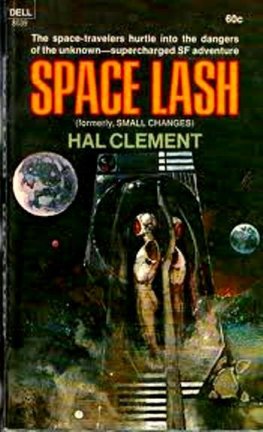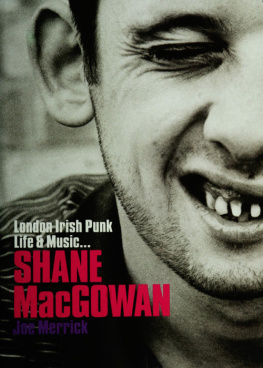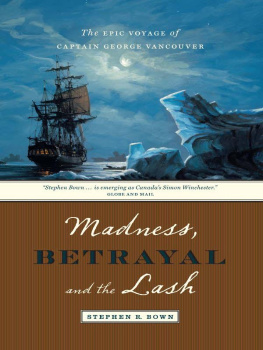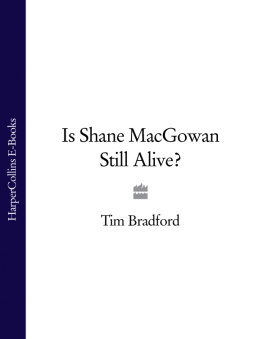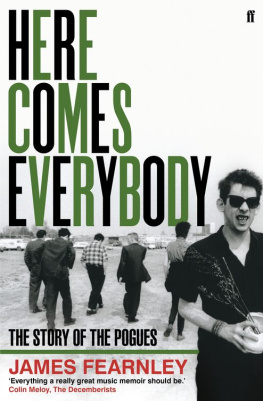Authors Note
Rum, Sodomy & the Lash found its way into my Walkman nearly twenty years ago in the form of an imported cassette. A few years later, after the tape had slurred into a heap of brown ribbon, I bought the CD version. A few years after that, I bought the CD reissue for its collection of bonus tracks. Most recently, I bought the LP. With each edition of the album that I owned, the cover art grew larger and larger andwithout my knowledge, at firstso did the songs. After a while, I began to think of them not as separate entities but as related fragments of heritage: secret histories. There were odes to the misunderstood, eulogies to the unsung, and unrelenting celebrations. Through the years, as I listened, I began to merge the characters and images of Rum, Sodomy & the Lash into a single story. Unsurprisingly, it was a nautical story, based somewhat on the historical plight of the French frigate Medusa. This story, at last transcribed from my brain to paper, comprises roughly two-thirds of this book. Like many stories, it has evolved over the years and will probably continue to do so after this book is done. I offer this story to you not for you to adopt my rendition, but with the hope that Rum, Sodomy & the Lash (or any music for that matter), if it hasnt already, might invite you to similarly honor your imagination.
I based much of my story on Alexander Corrard and J. B. Henry Savignys account of their experiences aboard the Medusa and its raft, Narrative of a Voyage to Senegal in 1816. Alexander McKees haunting and harrowing book The Wreck of the Medusa was also extremely helpful. Most of the characters in the story do or have existed, though their behaviors and actions in my story are fictional.
The other third of this book is comprised of facts, analyses, and more lucid interpretations of the people, places, and events that led to Rum, Sodomy & the Lash. Toward this effort there are many to thank. Pogues: Philip Chevron, James Fearnley, Jem Finer, Andrew Ranken, and Spider Stacey kindly shared their thoughts and memories with me. The breadth and candor of their information allowed me to explore their album more completely than Id anticipated upon embarking on this book. Carol Clerk was likewise generous with her correspondence and advice. Carols comprehensive biography of the Pogues, Pogue Mahone: The Story of the Pogues, was a wonderful resource for my research and is a book that Id recommend to anyone interested in the Pogues or simply in the many paths that modern music can take. Similarly, DzM, creator and administrator of pogues.com, and Jon Tout, site coadministrator of the Pogues Webring, whose websites often served as launching points into my research, kindly shared their perspecrives. Stephen Kingston at the Salford Star magazine was most kind in aiding me with my research on Dirty Old Town. I thank David Barker, John Mark Boling, Gabriella Page-Fort, and the rest of Continuum Publishing for creating the 33 1/3 book series and, furthermore, for giving me the opportunity to contribute to it.
Charles Ubaughs and Marvin Lin at Tiny Mix Tapes nurtured my love for writing about music. My parents and siblings: Chris, Sarah, Hillary, Lauren, Annie, and Craig, supported me with their encouragement. My ladies: Shannon, Emma, and Hannah loved me through my rants and exuberance, keeping me at a satisfactory distance between the moon and the shallows.
Bibliography
Castle, Charles & Tauber, Diana Napier. This Was Richard Tauber. London and New York: WH Allen, 1971.
Clarke, Victoria Mary & MacGowan, Shane. A Drink with Shane MacGowan. New York: Grove Press, 2001.
Clerk, Carol, Pogue Mahone. London: Omnibus Press, 2006
Cohn Livingston, Myra. Lots of Limericks. New York: Margaret K. McElderry Books, 1991.
Cole, William ed. Folk Songs of England, Ireland, Scotland and Wales. Garden City, NY: Doubleday and Company Inc., 1961.
Corrard, Alexander & Savigny, J. B. Henry. Narrative of a Voyage to Senegal in 1816 Undertaken by Order of the French Government, Comprising an Account of the Shipwreck of the Medusa, the Sufferings of the Crew, and the Various Occurrences on Board the Raft, in the Desert of Zaara, at St. Louis, and at the Camp of Daccard. To Which Are Subjoined Observations Respecting the Agriculture of the Western Coast of Africa, from Cape Blanco to the Mouth of the Gambia. Reprinted at http://www.gutenberg.org/files/11772/11772-8.txt.
Craig, Patricia. The Oxford Book of Ireland. New York: Oxford University Press, 1998.
Dixon-Kennedy, Mike. Celtic Myth and Legend. London: Blandford, 1997.
Geldoph, Bob. Liner notes, Waiting for Herb CD reissue. WEA International, 2004. Reprinted at: http://pogues.com/Print/geldof_essay_2005.html.
Irwin, Colin. Liner notes, Black and White: The Definitive Ewan MacColl Collection. Cooking Vinyl, 1990.
Janson, H. W. & Janson, Anthony F. History of Art 5th edition, revised. New York: Harry N. Abrams Inc. Publishing, 1997.
Keegan, John. The First World War. New York: Vintage Books, 1998.
Kingston, Stephen & Seeger, Peggy. Dirty Old Town, Salford Star no. 4, spring 2007.
Leone, Sergio, director. For a Few Dollars More. Produced by Arturo Gonzales, Alberto Grimaldi, Produzion Europe Associates, Constantin Film Produktion GmbH, 1967.
MacColl, Ewan. Lyrics for Dirty Old Town, in liner notes, Black and White: The Definitive Ewan MacColl Collection, Cooking Vinyl, 1990.
McCourt, Malachy. Danny Boy: The Legend of the Beloved Irish Ballad. Philadelphia: Running Press, 2000.
Mcllheney, Barry. Celtic Swingers, Melody Maker. Reprinted at: http://www.poges.com/Print/MelodyMaker/Celtics.html.
McKee, Alexander. The Wreck of the Medusa: The Tragic Story of the Death Raft. New York: Signet, 1975.
Montague-Browne, Anthony, Riddles, Mysteries, Enigmas, The Churchill Centre website. http://www.winstonchurchill.org/i4a/pages/index.cfm?pageid=112.
Pogues, the. Lyrics, liner notes, If I Should Fall from Grace reissue. WEA International, 2005.
. Lyrics, liner notes, Peace and Love reissue. WEA International, 2005.
. Lyrics, liner notes, Rum, Sodomy & the Lash reissue. WEA International, 2004.
Quantick, David. Liner notes, Rum, Sodomy & the Lash reissue. WEA International, 2004.
Scanlon, Ann. The Pogues: The Lost Decade. London: Omnibus Press, 1988.
Share, Sarah, director and producer, The Shane MacGowan Story: If I Should Fall From Grace. DVD. Bord Scannan na hEireann, The Irish Film Board, 2001.
Stiles, T. J. Jesse James: hast Rebel of the Civil War. New York: Albert A Knopf, 2002.
The Bank of the Thames, 1985
A life at sea had transformed the man who stood on the dark riverbank. It had withered his face, thickened his hands; it had offered him both freedom and tragedy. It had delivered him to places so far and beautiful that he wept at the sound of the waves. In the scent of the ocean he recalled old friends, just whispers now, with whom hed drunk, fought, and held under every imaginable circumstance. Now, this man was old; his legs unsteady, his fingers nubs, no longer suited for ropes.
At night, he wandered the riverbanks, looking to the great moored vessels that floated, impotent now, on crests of water illuminated by the city lights. He recited their histories as he watched them; he whispered the names of their crews, long committed to memory. Communing with the ships this way soothed him, like a family, an experience embraced.
One particular night, he watched commotion about one of the ships. There was musicfamiliar to the old man yet in some other way, damaged. There were drunken hollers from the deck that resounded over the water. At the railing of the ship he saw a man writhing with laughter, waving a bottle, spewing silver facets of rum into the air. Another group of men hoisted him onto their shoulders and cast him into the river.


